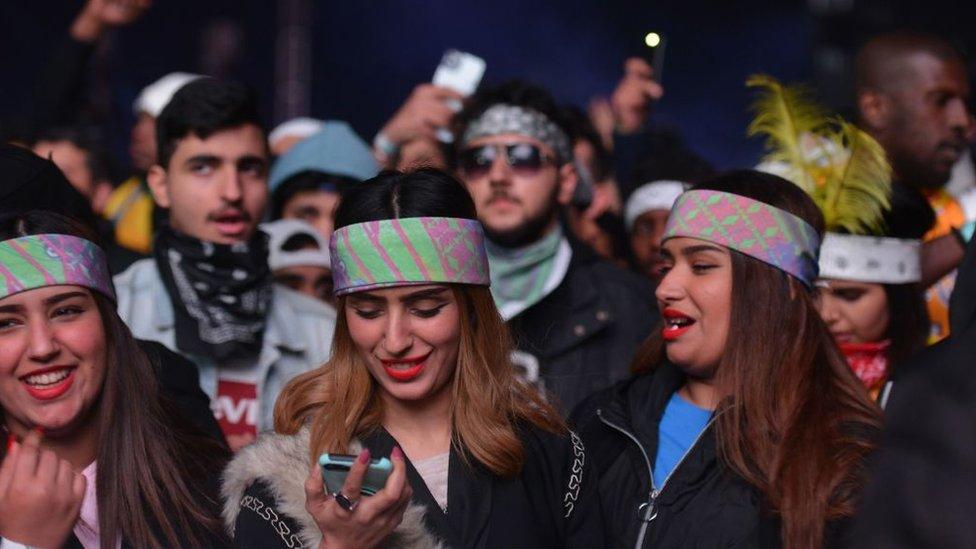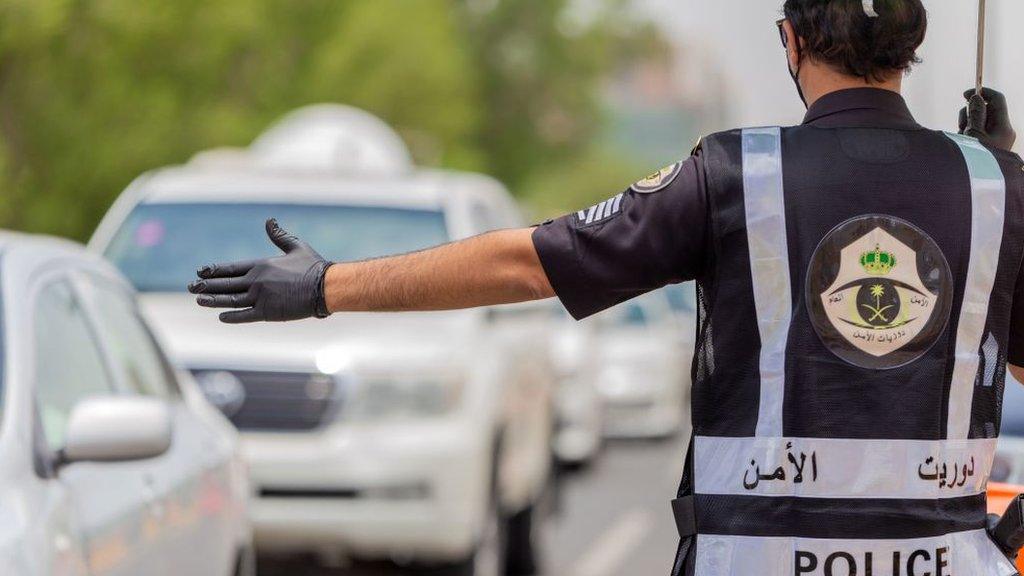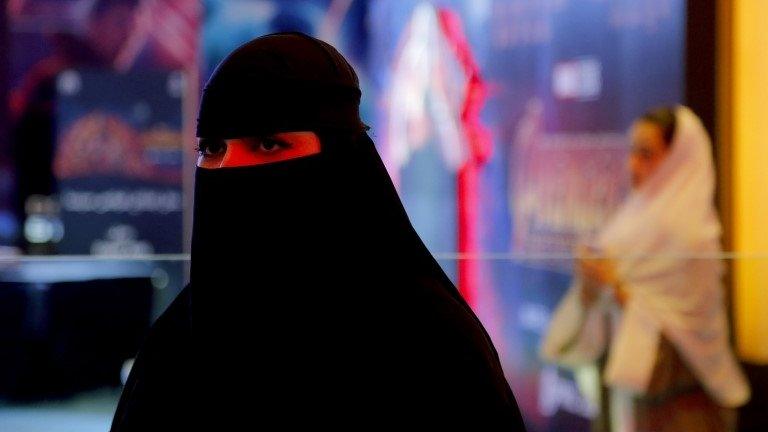Saudis warned of jail time for posting rumours after harassment claims
- Published

The latest incident comes weeks after similar claims surrounding a major music festival in Riyadh
Saudi authorities have warned that anyone spreading "baseless" rumours on social media could face up to five years in prison and a huge fine.
It comes after a cancelled concert in Riyadh led to reports online that young women were being sexually harassed as they tried to make their way home.
Some of the women have told the BBC of their fears over posting about what happened after the event.
The Saudi entertainment chief appeared to mock their claims in several tweets.
This is the latest development in the cultural and social clash that the opening up of Saudi Arabia from an austere and deeply conservative society to one that now hosts mass entertainment events has engendered.
The much anticipated concert, headlined by the K-Pop band Stray Kids, on the evening of 14 January was called off at the last moment due to high winds. Disappointed fans struggled to find their way home from the venue on the outskirts of the Saudi capital.
Reports began appearing on social media saying that girls had gone missing, as well as warnings of sexual harassment. Online at least, there appeared to be panic. Hashtags proliferated, amplifying the sense of jeopardy.
The reality is still unclear.
Many people who say they were there have since stated that no such incidents occurred and that the organisers did a good job in difficult circumstances.
Their case is perhaps strengthened by the fact that as the evening progressed, pictures were posted of men who were supposedly harassing women - but some of these were randomly taken from social media accounts or simply those of celebrities. This trolling undermined the assertions by a number of women that such incidents had taken place.
The head of the Saudi Entertainment Authority, Turki al-Sheikh, subsequently posted a number of tweets that appeared to mock the reports of harassment as entirely made up.
Memes swiftly sprang up, ridiculing the reports of harassment or of girls who had gone missing by a host of online accounts that accused those who had posted or reposted them of lying in order to discredit and embarrass Saudi Arabia.
But several women who have spoken to the BBC previously about their concerns over harassment of women at entertainment events in the kingdom insist that some of what was reported was genuine. They concede that this is hard to prove - as there don't appear to be videos or photos to back up the claims.
This is a perennial issue in Saudi Arabia where anyone posting such material puts themselves at risk - the women speaking to the BBC keep their identities hidden and use voice disguise devices when appearing on public forums like Spaces on Twitter.
They say that some of those who posted reports on social media or hosted discussions online about what they believed was happening have received threats and closed down their accounts. They believe that the official reaction is aimed at silencing those who might tarnish the new image of Saudi Arabia as an open, welcoming hub of entertainment in the region.
They fear that it will inhibit women in future from going public with experiences of sexual harassment - which they say is already constrained by the traditional social norms of the Kingdom.
This latest furore over an entertainment event comes weeks after the four-day MDL Beast music festival - also in Riyadh - attracted not only hundreds of thousands of people, but also something of a backlash from conservative elements in Saudi Arabia.
The organisers of the event issued a code of conduct that stipulated that there would be zero tolerance for any form of harassment.
Bolstering the sense that the Saudi authorities may indeed be taking the issue seriously was the recent case of a man found guilty of sexual harassment. His name was published in local media - the first time that this has happened.
Supporters of the Saudi crown prince's ambitious project for opening the kingdom up to the world say these are teething troubles, inevitable when such a traditional culture is undergoing such huge changes.
But for the women who voiced their concern over what they believe happened on 14 January, the fear is that their freedom to speak out has been further curtailed.

You may also be interested in:
Saudi Arabia reforms: Are they good news for women?
Related topics
- Published11 January 2022

- Published21 December 2021

- Published29 May 2018
